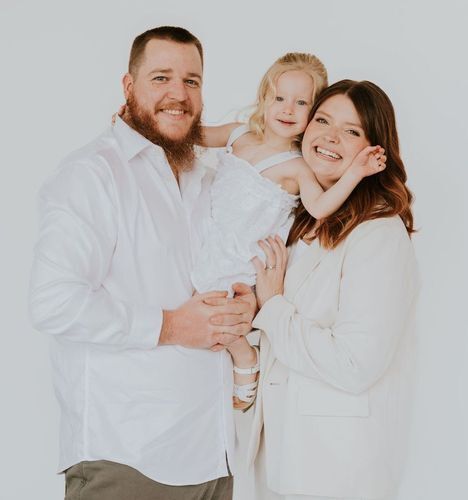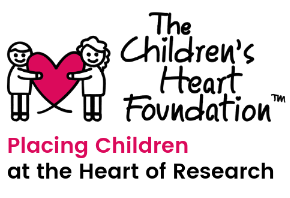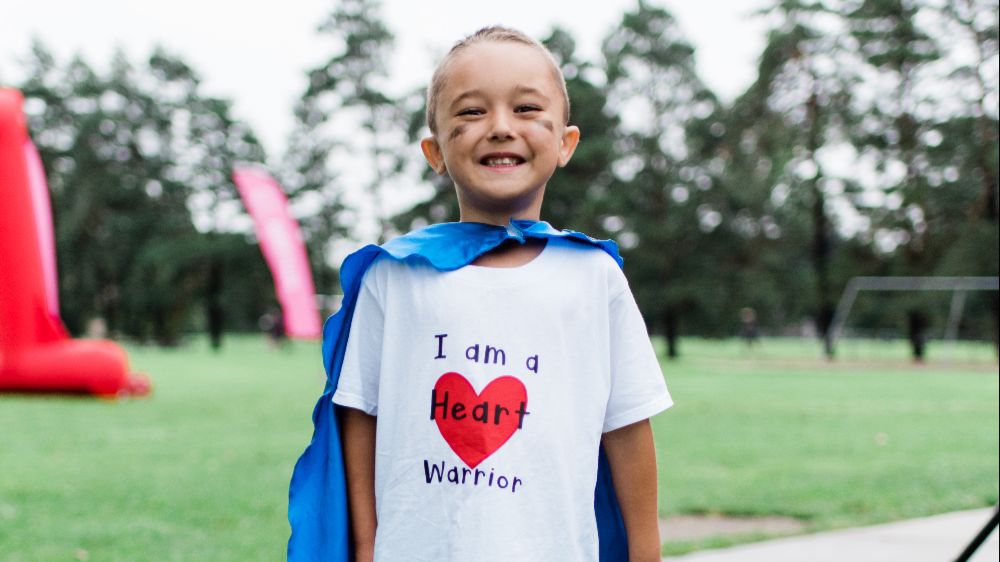Turning Grief Into Advocacy: Meadow’s CHD Story

By Sarah Michelle Boes
"I’ll never forget the day an extra ultrasound changed everything.
Late in my pregnancy with my daughter, Meadow, I made the decision to switch OBs. From the outside, it may have seemed unusual to change providers so late in pregnancy, but I knew it was the right choice for my mental health. That decision led to an additional anatomy scan I would not have otherwise had, and during that scan we learned that Meadow’s heart was not developing typically.
At first, the news was vague: there might be a heart defect. As more testing was done, the full diagnosis became clear: Tetralogy of Fallot with Pulmonary Atresia. As a family nurse practitioner, I was no stranger to complex medical language and helping families navigate difficult diagnoses. Yet nothing could prepare me for hearing those words about my own child.
In an instant, my expectations of a “normal” pregnancy and newborn experience were replaced by the reality of congenital heart disease. I learned that my baby would need open-heart surgery within her first week of life, another by her first birthday, and potentially three to four more throughout her lifetime. It was a lot to process in the final two weeks of pregnancy, a time I thought would be spent preparing a nursery rather than preparing for heart surgery.
When Meadow was born, those predictions quickly became our reality. She had her first heart surgery within her first week of life, and another before she turned one. During her second surgery which was her full repair, we nearly lost her. Even with a medical background, nothing could prepare me for the experience of standing by my child’s hospital bed and realizing how fragile her life was. Meadow fought through with a strength that still amazes me, but those moments left deep scars, both physical and emotional.
Tetralogy of Fallot is one of the most common congenital heart defects, which means Meadow’s story is tragically familiar for many families. Yet when you are the parent living through it, the experience feels isolating. That sense of isolation shifted for me when I realized that while I could not control what Meadow had to endure, I could channel my grief into something purposeful.
Advocacy became that outlet. Over the past few years, I have leaned into every opportunity to raise awareness, build community, and push research forward for children with CHD. This year, I had the honor of co-chairing the Cincinnati Heart Walk for The Children’s Heart Foundation. Standing alongside other families, providers, and advocates, I witnessed the power of collective action. Every dollar raised, every story shared, and every step taken moved us closer to breakthroughs that will change the future for children like Meadow.
When Meadow was born, we were told she would likely need at least five or six open-heart surgeries in her lifetime. Only a few years later, medical advances already give us hope that the number could be less. That is the impact of research. That is the difference advocacy can make.
Today, Meadow is thriving. She is strong, spirited, and every bit the heart warrior she was born to be. Her story is one of challenge, yes, but also of resilience, love, and community. While I will never forget the fear and grief of those early days, I have learned how to let those feelings fuel change.
Every step I take in this journey, whether speaking out, fundraising, or simply sharing our story, is for Meadow. It is also for every child whose heart story is still unfolding. Advocacy may not erase the scars, but it has the power to create a future where children with CHD face fewer surgeries, fewer hospital stays, and more full, joyful lives. That is a future worth fighting for."
Note: Sarah was the chair for the 2025 Cincinnati Congenital Heart Walk and was able to grow attendance exponentially due to her CHD advocacy.


